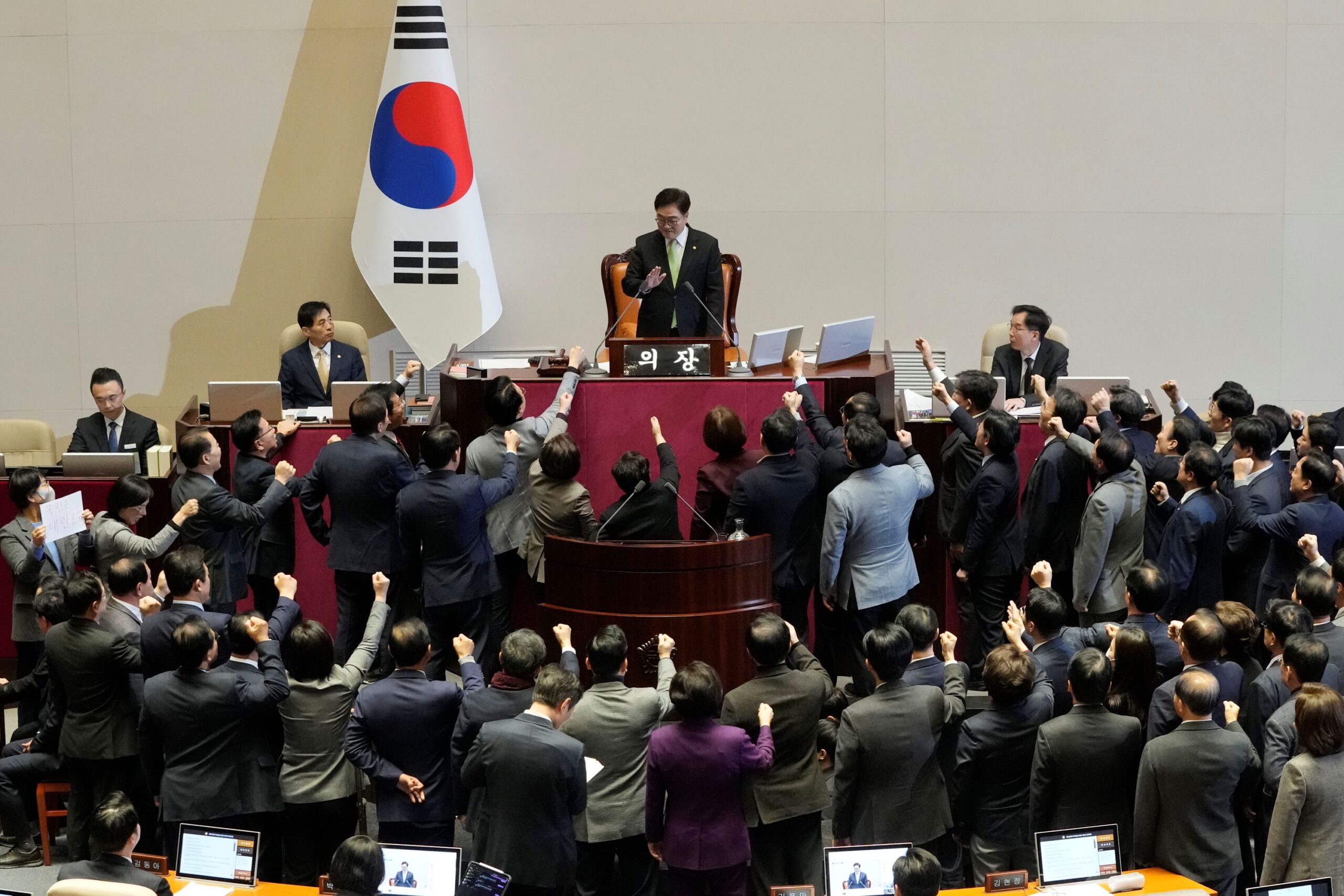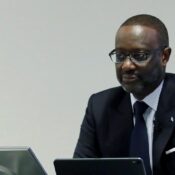
Yoon’s trial results in the impeachment of South Korea’s acting president, Han Duck-Soo
Less than two weeks after suspending President Yoon Suk Yeol’s authority due to his brief use of martial law, South Korea’s parliament impeached interim President Han Duck-soo on Friday, further destabilizing the nation.
South Korea’s once-bright democratic success story has reached unprecedented heights with the impeachment of Prime Minister Han, who served as acting president since Yoon was impeached on December 14 for imposing martial law on December 3.
Assuming the role of acting president while the Constitutional Court considers the cases of Yoon and Han, Finance Minister Choi Sang-mok called a meeting of the National Security Council, addressed important officials, including military leaders, and promised to do everything within his power to stabilize state affairs.
The sudden declaration of martial rule and the political turmoil that followed rocked Asia’s fourth-largest economy and alarmed friends in the US and Europe who had viewed Yoon as a crucial ally in the fight against North Korea, China, and Russia.
Uncertainty is increased by Han’s abrupt dismissal, and Choi may potentially be removed if he disagrees with the opposition-led parliament.
Choi stated, “The government must do its best to ensure that the people do not become anxious, or the security of the country and people’s daily lives are not shaken,” according to a statement released by his office.
Choi had previously unsuccessfully lobbied with parliament to revoke the impeachment proposal against Han, claiming that it would seriously harm the economy.
Prior to the vote, the Korean won had fallen to a more than 15-year low of 1,486.7 per dollar, and it was down 0.5% at 1,477.0 as of 1100 GMT.
According to Huh Jae-hwan, an analyst at Eugene Investment & Securities, “Choi’s assumption of power can only be bad news for financial markets, as it only goes to show that political turmoil is ongoing.”
The nation may see economic difficulties similar to its catastrophic financial crisis in the late 1990s, according to Shin Yul, a professor of political science at Myongji University.
The Constitutional War
Han was impeached after refusing to choose three judges to the Constitutional Court right away, claiming that this would go beyond his acting duties.
Han claimed to have accepted the result. “…In order to avoid further chaos and uncertainty, I will suspend my duties in accordance with relevant laws,” he stated.
He went on to say that he will evaluate the impeachment motion and wait for the Constitutional Court’s ruling.
The ruling People Power Party (PPP) boycotted the vote, and the opposition parties’ motion carried with 192 votes in favor and no opposition. PPP members gathered around the speaker’s podium and chanted that parliament had practiced “tyranny” and that the vote was void.
Opposition leader Lee Jae-myung of the Democratic Party, which controls the majority in parliament, charged Han with “acting for insurrection” before to the start of the legislative session.
The number of votes required to impeach Han was not known until just before the vote started. A two-thirds majority is required for a president, but a simple majority is required for a prime minister.
The People Power Party stated it has filed a constitutional court case stating that such a bar was too low to remove an acting president, notwithstanding Speaker Woo Won-shik’s declaration that a simple majority would represent legislative consent.
THE SWIFT TRIAL
The Constitutional Court convened its initial hearing on Friday to consider whether to remove Yoon from office permanently or reinstall him. It must make a decision within 180 days.
Justice Cheong Hyung-sik said the court will proceed quickly at a preparatory session, rejecting Yoon’s attorneys’ plea for a suspension of the hearings so they could properly prepare.
The following hearing is scheduled on January 3.
Later, Yoon’s attorney informed reporters that the impeached president intended to make a future in-person appearance.
He did not have to show up for the hearing on Friday. Due to his proclamation of martial law, he had already disregarded summonses and court orders to provide papers in a different criminal case.
A new presidential election would be held within 60 days if he were to be removed.
Following his effort to impose martial law, opinion surveys revealed that the people was overwhelmingly in favor of Yoon’s ouster.
DECADES’ WORST POLITICAL CRISIS
Yoon’s late-night declaration on December 3 that martial rule will be imposed in order to break political impasse and drive out “anti-state forces” startled the nation and the globe.
But within hours, 190 MPs had voted against Yoon’s directive, defying the police and military cordons. Yoon revoked his original ruling around six hours later.
South Korea’s worst political crisis since 1987, when protesters compelled the ruling party of former military generals to concede a direct, popular vote to pick the president, has been triggered by events following the announcement.
In the first step to try an official suspected of rebellion, prosecutors charged former Defense Minister Kim Yong-hyun on Friday, according to Yonhap news.
All Categories
Recent Posts
Tags
+13162306000
zoneyetu@yahoo.com



